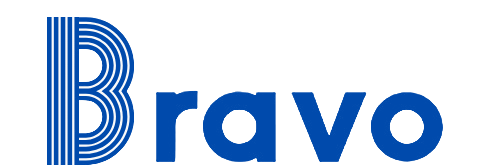Our Personal Statements


Josh’s Personal Statement
The Royal Academy of Engineering and the Engineering Council published their ethical principles for engineers. These ethics are important because they provide responsible and professional behaviour that ensures engineers take the right decisions to benefit their society. The main points highlighted are honesty, integrity, respect, leadership and communication skills which are also very important because they establish a foundation of trust. The skills mentioned ensure that engineers act as role models in their profession, contributing to not only technical advancements but also social and environmental well-being.
As a member of the IET I will abide to the ethics presented to help better my skills to work in a group and help gain the trust of my peers. When ethical principles are not followed, risks can be significant such as safety issues, environmental harm and loss of trust.
Other engineering ethics such as ones provide by the NSPE are also responsible for making decisions that provide public safety as well as environmental sustainability. I have decided to choose this source because it focuses on public welfare by reminding engineers of their responsibility to prioritize the benefits to society. The guidelines help engineers balance their technical expertise with social responsibility. These guidelines can be directly applied to the EG-252 module to ensure safety.

Rhys’ Personal Statement
As a student studying engineering at Swansea university adhering to the rules of conduct set out by the IET is an important part of my course. As can be seen on the page found on the IET website a breach of these rules can result in the termination of membership which is decided by the board. The rules of conduct use the code of ethics laid out by the engineering council and the royal academy of engineering as a template. Some of the key rules relate to how business is handled which doesn’t apply to me yet but is important to know for when I (hopefully) finish my degree. Right now though the most important rules for me are those regarding safety and integrity of knowledge as one of the rules does relate to taking steps to ensure that my engineering know how is up to date.
The code of conduct for the IET was last updated in June 2024 so it is relatively up to date when compared to the royal academy of engineering. the most up to date file I could find was a PDF dated 2017 so in my opinion they could do with updating considering the advancement of technology in recent years.
Following a code of conduct is important to me as having access to a set of rules that I can use to further my career whilst also being aware of the impact that my work will have on others. Making sure that my actions are responsible and safe is one of my top priorities because one mistake when working with electricity can have disastrous consequences.

Khizar’s Personal Statement
The joint Statement of Ethical Principles is an informative piece of document that provides insight to RAE and EC as well as other organisation’s ethical values and views shown here
Honesty and integrity is a crucial characteristic that generally everyone should integrate into their life. Especially as engineers. If I was to make a mistake in a group project, I believe that owning up to it and being honest, while accepting the consequences, would help me because I’d expect the mistake to be corrected by a team member or a member of the staff depending on the scale of the mistake. Facing the consequence would also make the mistake less likely to happen again in the future. As well as this, the IET mentions whistleblowing, which is also crucial to prevent an organization from becoming ‘dirty’, adopting these values early adds to integrity and a person of integrity is a person that would make it far as an engineer. Honesty in regards to public relations is also important, which was mentioned in this link (by Harvard Business School online) under the third point referring to NSPE’s codes. It talks about ,as an engineer, gaining the public’s trust and avoiding deception, misrepresentation etc which is also very important.
Respect for life is a key value which a company should be strict with. In the PDF, revised by RAE and EC, they discuss importance of safety of engineers and the stakeholders of the project(s). They mentioned an example of The Challenger disaster where there was a leak in a space shuttle leading to an explosion which killed all seven crew members. The tragedy was caused by a lack of accuracy and rigorousness, which could be due to poor management – hiring engineers that are careless or potentially a lack of eye to detail by quality control. Michael Davis who is a “leading ethicist” investigated the disaster and found that the head engineer was told to think like a manager, and not an engineer.
Respect for the environment and public goods go hand in hand due to the fact that damaging the environment results in a negative effect in public goods. For example, in Joe Rogan’s podcast with Elon Musk, he talks about how digging up carbon from the ground and burning it into the air causes health issues for other humans as well as other harm to the environment. This is an issue that the government should regulate, though given there are some outdated laws, companies should consider the impact of sustainability themselves in relation to their projects.
Regarding accuracy and rigour, the link provided here leads to the RAE’s PDF document which highlights the importance of accuracy and rigorousness with detail. It mentions that professional engineers must have a keen eye for detail and must avoid carelessness at all times. Not being accurate and rigorous can lead to “financial failures, accidents, injuries and deaths” which is catastrophic for all parties. Being ethically rigorous, as a professional engineer, links to integrity as it requires being honest. Though in this context it suggests that an engineer must be honest about their skills and knowledge. The PDF, by RAE, states that if an engineer takes on a project which requires skills and knowledge beyond their capability, they should reconsider taking on the project as it may lead to the catastrophic examples mentioned before.
At first, it is obvious that leadership and communication consists of listening/hearing other engineers. Considering their concerns and ideas as this can light a spark for a solution to a problem. Ignoring others in your team can be quite frustrating for the team members and can also lead to reduced accuracy and rigour. Although this is extremely significant, leadership and communication also consists of being honest and full of integrity. The “engineering ethics in practice” PDF mentions bribes. Taking bribes can lead to breaking trust of the public, shareholders or team members. The lack of communication, hence taking a bribe, can be the beginning of the downfall of someone’s career or even the company.
To conclude, these ethical codes are significant for an engineer, and as someone who’s aspiring to become one, I believe that adopting these principles will aid my career and will contribute for me becoming a professional.

Adwik’s Personal Statement
The Statement of Ethical Principles by The Royal Academy of Engineering and The Engineering Council highlights honesty, integrity, leadership and respect as essential values for an Engineer. These values ensure responsible decision making and upholds trust.
In my EG-252 module I will apply these ethical principles in my labs where safety, accuracy and professionalism are critical. Abiding by ethical principles prevents safety hazards, ensures reliable experimental results, and promotes teamwork. The IET’s Rule of Conduct emphasises maintaining public safety, which is vital in a lab setting.
Following these standards will help me build a strong ethical foundation as an engineering student. The EG-252 module provides an opportunity to apply these values in a real lab settings, reinforcing the importance of professionalism and ethical responsibility. By adhering to these principles, it not only enhances my technical skills but also prepares me to contribute to the engineering field with integrity and commitment to public welfare.
